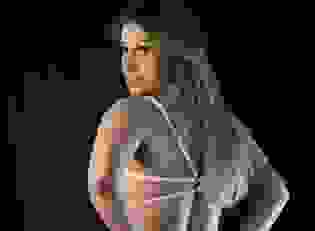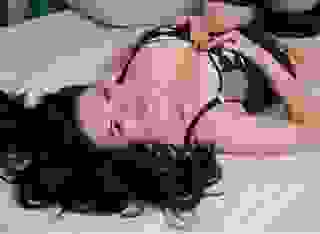- Mature
- Armistice Day
- Page 3
Note: You can change font size, font face, and turn on dark mode by clicking the "A" icon tab in the Story Info Box.
You can temporarily switch back to a Classic Literotica® experience during our ongoing public Beta testing. Please consider leaving feedback on issues you experience or suggest improvements.
Click hereWhat a horrifying sight, the blade sinking into my cobber, but strangely Will appears super human and uses his own rifle to brace against the man, grunting and pushing him back, then Archie fires from less than a foot away, the enemy dropping in the darkness, warm blood spraying from the mess, adding to the mud.
The whole incident took a second or two and the soldier falls at my side where I crouch, but there's no time to contemplate his fate because my machinegun's at my shoulder, my finger firing bursts into the men charging after their dead comrade, tat-tat-tat-tat, the gun loud in my ear and jerking in my hands, answered with shouts and screams and more bullets thumping around me, and I'm dropping to the trench floor to fire another burst.
Above all this, Will taps me on the shoulder, his voice calmly telling me, "It's time to go..."
There are more gunshots, loud and close, and artillery bursting somewhere close too, and I'm sweating, laying in darkness.
It's not gunshots, but heavy rain pattering hard on the iron roof above me, cooling the air. The occasional thunder-crack is similar to an artillery barrage, and I sit up, realising I'm in a bed, a strange bed.
And then I start coughing.
~0~
"I heard you coughing last night."
"I'm sorry, I hope I didn't keep you awake."
"You're no trouble. The storm woke me before I heard you coughing."
"The storm woke me too. When the night air is cold, it tickles my airways."
"The doctor can fix it?"
"No, only time."
"One month, you say?"
"The doctor wants to see me in a month, yes. It's been over a year, time's not going to fix it in another month."
"Oh." Carmel rests her arms on the table opposite me, our breakfast of egg and bread barely touched.
Later I follow her to the back garden, into a small paved courtyard with a wrought iron table and chairs, then beyond down a neat stone path passing between rows of vegetable beds to the dunny by the back fence. A gate there leads to what I presume is a laneway beyond.
The sun is bright, the garden sparkling with light reflecting off thousands of rain drops where they lay on the foliage of spinach, silver beet, broccoli, beans, pumpkins, carrots and the like. The garden is at least forty to fifty feet from the rear of the rear of the house to the back fence, and like the house, about twenty feet wide, a six foot high timber paling fence enclosing the yard. Along the fence are roses in bloom; reds, pinks and whites, looking splendid with more than a few bees flying in and out of their yellow centres. Carmel leads the way, wearing a white blouse and simple beige dress falling to near her ankles, and she crouches, picking something off the path, tossing it into the lane beyond.
At first I think it's a rock, but then she utters, "Snails are coming back to eat my greens."
Surprising myself, I'm horrified she'd tossed the creature over the fence without second thought. I've hunted rabbits, roos, wild pigs, killed livestock, chickens and ducks, and more than a few snakes too, but all before the war. In Europe I hunted men and I've seen and caused enough death to last several lifetimes. Something triggers in me, watching a creature as small and innocent as a snail being sent to its death, wondering if it had time to think about its last moments.
Carmel doesn't see my horror, of course, and she crouches down at her leafy broccolis, plucking a tiny green caterpillar from a leaf, then holding it up to me. "These are cabbage moth caterpillars. You can pluck them off and I usually toss them into the lane like the snail. Birds will eat them. See these holes in the leaves? They'll strip whole plants if you let them, causing the flower heads to become disfigured and stunted."
She's asking me to do a simple task and owe her my gratitude, but I find the idea of killing anything difficult. Carmel leaves me be and after a short search I locate a tin bucket from near the out-house, and I begin collecting the caterpillars. Counting as I pluck them, I find over sixty of the tiny things, a mass of writhing green at the bottom of the bucket, to which I add a few snails.
There is indeed a lane through the gate, with a cobble-stone surface, a few weedy bushes against Carmel's neighbour's fences, and also some species of vine covering a brick fence across the lane. Spreading the caterpillars and snails among the various foliage here, I whisper, "I won't tell anyone you're hiding out here if you don't tell anyone I've gone soft."
Deep down I know the caterpillars will likely not survive, because the leaves of their new homes are thicker than the juicy broccoli leaves, and I'm uncomfortable with this knowledge but pretend everything will be alright. The snails stand a better chance, I'm sure of it.
I switch to weeding and later Carmel arrives at the backdoor wearing her apron and a simple white wide-brimmed hat upon her head. She's carrying a jar of water with a lemon in the bottom, remarking, "Splendid job you're doing, Alfie. Already you've helped out a million times more than the last soldier they sent me. Join me for a drink?"
Wiping my sleeve across my brow, I smile and nod, "Thank you," and I join her at the wrought iron table.
As she pours the lemon water, she speaks. "My husband Edward and I bought this place back when we were newly married in ninety-three. I was twenty-three at the time with grand ideas for this garden, but Eddie was a practical man and thought we should produce our own vegetables to save money. I've found tending to the garden to be quite therapeutic over the years and perhaps working in the sunshine will help you too."
She passes me a full glass and again I say, "Thank you," taking the glass, waiting for Carmel to fill her own. She does and we clink them together and I relish the taste of the cool water flowing down my parched throat. The tickle of cold near my lungs is there, but mercifully I don't cough, placing my glass back on the table. "May I ask what happened to your husband?"
"Passed away ten years ago," she tells me, her tone matter-of-fact. "Horse riding accident, or misadventure as the coroner said. He worked for the railways as a surveyor and was with a party mapping the route for a proposed line to the farming districts north-east of Melbourne. Some of the men decided to race their horses against some local lads and poor Eddie's horse stumbled in a hole and he fell hard. Silly fool."
"I'm sorry, Mrs Mc..."
"Carmel," she says, shaking her head.
"Sorry, a habit."
"A habit you need to break, young man. I'm Mrs McCotter to so many people, but I'll tell you something about my husband, Edward McCotter. He had a mistress, a younger woman who lived in Toorak. I took his name and he took liberties with another woman. Daughter of a banker he was dealing with on some investments. And the funny thing is, though it's not really funny, her cousin became my son-in-law! Married my daughter, and sadly it's not really funny because the fool managed to get himself killed in one of those new-fangled aeroplanes over in Europe, making my daughter a widow too. It's a strange, strange world, Alfie."
"It certainly is," I say, taking another sip of water, remembering how brave we thought those fliers were going up in their flimsy death traps.
"Unbelievable is what I call it, but what can one do? My Eddie was an adulterer and what I've learnt is most men are. Yet I loved him and was none the wiser at the time. After all, he always came back home to me each night." She stops, smiles, shakes her head, then looks me in the eye. "I'm sorry, Alfie, but I do get a bit worked up about what happened."
"No need to be sorry. With all due respect, I think your husband must have had a few roos loose in the top paddock to be unfaithful to you. I can't imagine a kinder woman, so I dare say he regretted his choices. Or at least, he should have."
I mean what I say and Carmel smiles. "You're very kind, Alfie, but no, I don't think Eddie regretted his decision. He kept it from me for several years and I only found out after he died. Fifteen years of marriage...anyway, I don't regret it either because I had four children. Though we lost poor Stanley to pertussis when he was two."
"I'm sorry to hear..."
She nods and sighs. "Sometimes I wonder if Stanley's death is what sparked Eddie off on his adultering ways. Anyhow, enough about me. Do you have a girl waiting for you at home?"
Suddenly I think of Mary. I'm not sure why, but I feel responsible for her, because Will asked me. I think of Will's sister, Ava, who rejected my advances, and of Ethel Wilson who lived up to her reputation of never rejecting any boy. Shaking my head I answer, "No, I don't have a girl waiting for me, but my cobber...um, my friend asked me to tell his wife he loves her."
"Your friend didn't make it back, did he?"
"No...we joined up together. We've known each other since we were little kids and we played cricket for the district together before we joined the Army. He was vice-captain of the team."
I'm looking at my empty glass now, thinking of Will and of Mary and their son, Jack, who wasn't even one year old when Will left for the war. And I think of the O'Riordan twins, Michael and Francis, stocky dairy farmers and our opening batsmen, poor Francis killed by an artillery round at a place called Messines, and Michael severely wounded by the same blast, stretchered off the field wailing his brother's name, and I have no idea if he lived or died.
There was Arthur Coleman, our wicket keeper and middle order batsman, an older fella who joined up in the first weeks of the war, inspiring us to follow his footsteps, killed at Gallipoli before we even shipped out.
I'd heard Walter Forsyth, a talented tailender and our medium pacer, took a machinegun position almost single handed in the battle for Messines, accurately throwing Mills bomb grenades thirty or so yards straight through the gun embrasure while his platoon was pinned down, killing the gun crew, only to be shot dead by a wounded soldier when they stormed the trench.
There were others from our district, and I know many homes are missing sons, brothers, husbands, fathers, and even more from across the nation. Thousands of dead and missing.
"I'm sorry," Carmel whispers.
"Yeah, I'm..."
Speechless.
We sit in silence for a while, the sun beating upon me, burning the back of my neck. Then Carmel speaks again. "I saw you save all those caterpillars. I imagine you put them in the bushes in the lane. May I suggest giving them a fighting chance by tossing them over the fence three doors down that way, into Charles Franklin's vegie patch. He's a grumpy bastard if there ever was one, and I don't like the way he speaks to me at times. Quite a strange and rude man, if you ask me. Indeed, his garden can have the snails too!"
I look up and Carmel has a smirk upon her lips. I can't help but smile in return.
~0~
The room is stuffy and hot, having warmed significantly under the late-spring sun through the day, and the iron roof contracts, loudly cracking nothing like rifle fire, but the sound leaves me on edge. I can't sleep, thus I lie in this strange bed, either Carmel's son Henry's or George's, she hasn't told me whose, and I wonder about these boys of hers who are still in Europe.
Silly kids, I think. Just like me and thousands of other lads, of course. One could join up with no issue at twenty-one years of age, but those who were eighteen, nineteen or twenty required a parent's permission. Of course, many letters and signatures were forged, and many of those were by lads younger than eighteen, eager to fight. For King and Country, or something equally as stupid.
Turning eighteen in late nineteen-fourteen, I was eager, but my father was reluctant to let me join. But he saw my cobbers were going to join and so he relented. I can't help but think how this parallels the stories of so many diggers I've known, and how Carmel told me she forbade her two boys to join up, but both boys were fit and strong and eager to fight and she reluctantly wrote permission letters on George's eighteenth birthday, committing both her sons to the slaughter.
My mother was straight up opposed to the war. "Let the British fight their own damn battles," she'd say, sounding almost like her Irish Mother and Father, my Grandparents of course.
Dad was ex-light horse, fighting the Boers in South Africa. He'd seen horrors and certainly never spoke of them, where throughout my childhood he'd only told me once of a mounted charge, but shared plenty of funny anecdotes of army life and silly things he and his mates did. To me it sounded like a great adventure. Yet he and Mum argued even as he wrote my permission letter; Mum's voice raised, telling all who could hear how Dad still woke sometimes through the night, the faces of enemies and comrades haunting his dreams.
Dad signed the letter anyway, because I was the stupid fella who wanted to join his mates on the adventure of a lifetime.
Now it's me who re-lives my adventures almost every night when I fall asleep. The mud, the fear, the bullets, the explosions, the raids, the gas.
And the death.
The artillery falls behind the lines and the gas begins to swirl, heavier than air so it sinks to the lowest points of the battlefield, which are our trenches. Will, my best mate and bravest man I ever met, who we all look up to, is calling, "Gas, lads, get your masks on now!"
Archie fumbles and Will helps calm the lad. Others fumble too despite our constant drills, but mine's on quicker than a flash. It's a matter of life and death. I help a young lad with his respirator mask and notice Will finish with Archie, then standing there, making sure the boys have masked up correctly.
"Check your seals," he bellows.
"Get your nose bag on Will," I tell him, wondering why he hasn't done so.
For a moment he ignores me.
"Get your bloody mask on, mate!" Urgency now. I'm a corporal and he's a sergeant, but rank be damned, Will's me closest cobber.
"Get your mask on, please!"
Will turns to me, pulls his mask from its canvas bag, holding it up to me. Its glass eye socket remains shattered and the rubber hose is still sliced cleanly through, like when he'd shown me earlier. An hour or two ago, I can't remember, but his eyes say it all; he hasn't had time to replace it. He speaks, voice matter of fact, "Tell Mary I love her when you get back, won't you, and make sure she and Jack are provided for."
Ripping my mask off, thrusting it in his direction, I say, "You'll make it back to them and tell her yourself."
"Don't be a fool, get your mask back on."
"Take it."
"That's an order, Alfie."
"Take my bloody respirator."
The yellowy green is swirling, we can smell it, men with defective masks that weren't sealed properly or are still fumbling begin coughing, retching, and I get a lungful and I think my lungs and stomach want to escape my body, the nausea rising quicker than lighting, and Will's eyes are wide and blue, and he screams at me, "Put your fucking mask on now, Alfie!"
He collapses and so do I, fumbling despite practiced hands, mask on quickly but lungs burning, charcoal beginning to absorb deadly chlorine, but too little too late, and Will's on his hands and knees in the mud covering the timber duckboards at the floor of the trench, retching his guts up, arching his back like he'll turn inside out, making an ungodly noise, like a demon is spawning from his soul and trying to escape his body.
My hands sink into the mud between boards and I'm retching too, my body doing all it can to expel the poison, a hand grabs my arm, gripping like a vice, Will's unmasked eyes, once bright and blue but now bloodshot and desperate lock with mine.
"Shoot me, Alfie, please shoot me!"
~0~
"Alfred, wake up, you're dreaming."
There's someone grabbing me in the dark, maybe it's Will or Archie trying to pull me to safety.
"Wilhelm!"
"Alfie, it's me, Carmel, please, it's just a dream, you're safe."
A woman, Carmel, yes. On the edge of the bed, gently shaking my arm. After a brief coughing fit, I sit upright. "Sorry, sorry, did I wake you?"
"It's fine, it's you I'm worried for. You were...calling out for William."
"Wilhelm, not William." My face is wet and I wipe with my sleeve, hoping she hasn't noticed.
"Sorry?"
"Will's parents were Germans but he was Australian. Born and bred in the same valley as me, but his name was Wilhelm all the same."
"Oh, I see," she says, unconvincingly.
"Sorry if I woke you."
"No," she whispers, cupping my face. I place my hand on hers and she pulls me in, holding me against her soft bosom.
Oh dear, I can't control the unexpected swelling of my manhood, which is fully erect in my army-issue cotton drawers before I realise.
She brushes me where I wish she hadn't, but also glad she did, sending a shot of pleasure surging through my body. Her face is close to mine when I look up and without thinking my lips are against hers.
She pulls back and I'm pulling away too, letting her go. "Oh, my, I'm so sorry, Carmel. I didn't..."
"Shhh...hush," she whispers, placing her hand on mine. "Shhh..."
~0~
"Cat got your tongue?" she asks, placing my breakfast of eggs on toast in front of me.
"Thank you."
"Is that all you're going to say?" She has a little smirk on her lips when she sits opposite me.
"I'm sorry about last night."
"Don't be. I'm a woman and well versed in young men's desire. Eddie was not my first, believe it or not, because young women have desires for love and romance too."
"I shouldn't have kissed you, I'm really very sorry I did."
"Let me give you advice for free. Always ask a lady for a kiss, because far too many men take liberties and it's often unwanted." She smiles and takes my hand across the table. "But between you and me, Alfie, you're a handsome and fine young man who I enjoy the company of very much, and if I were maybe ten or fifteen years younger I may have even let you kiss me some more last night."
Squeezing her hand and looking into her eyes, I tell her, "You wouldn't need to be ten of fifteen years younger, if you change your mind."
She laughs, winks, and tells me, "Eat up and get better and maybe we can go for a stroll along the river later."
~0~
Over the course of the following week neither of us speak about the night I kissed her, like it never happened. One day Carmel receives a telegram from her sons Henry and George. They are safe and staying in a barn somewhere in the French country side, behind the lines. She dances down the hall, sharing her news with me in the most cheery voice, and there are rumours the Germans are on the ropes. There's always rumours but I share her elation.
My days are often spent tending Carmel's garden and on many afternoons the back-lane becomes a cricket pitch for local kids, and I sometimes join them. There's Billy the ringleader, red haired with a face full of freckles, who's fifteen and hopes the war doesn't finish before he's old enough to join up like his older brother did; Warren, short and stocky with a tufts of bond hair, a plucky leg-spinner whose father and older brother joined up together, both dying somewhere on a Middle Eastern battlefield, making Warren curse the Turks and the fact he's too young to have at them; Harry, a little fella with the build of a jockey, handy with the bat, striking the ball in the centre even when the ball bounces randomly off the cobble-stones, who tells me his father's a sailor in the Navy; and there's siblings Jeremy and Grace, both with curly black hair in which I'm sure I've seen a louse or three crawling about, and dirty faces too, looking everything like street urchins. Jeremy talks constantly of their older brother who returned from France without his left arm, while younger Grace is anything but lady-like, swearing like a trooper as the rest of them do and can hold her own against any of the boys, bowling them out on many occasions and regularly hitting the ball far down the lane.








